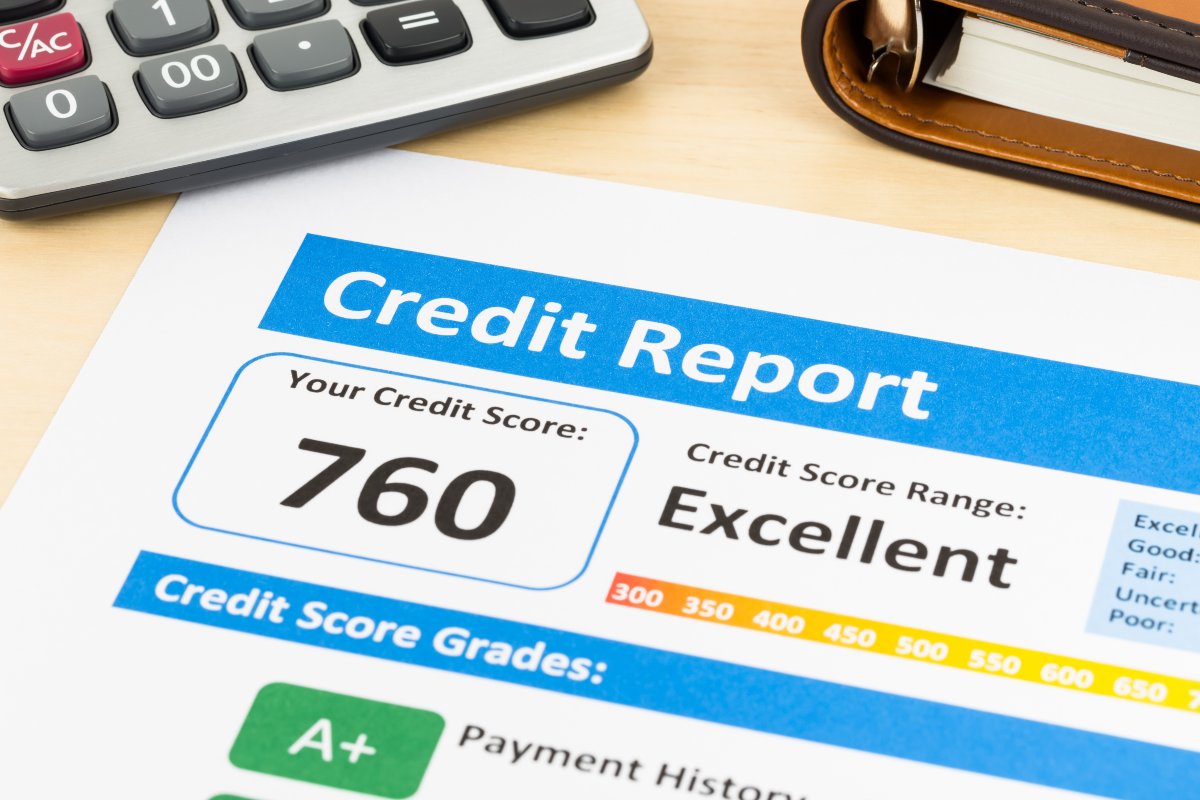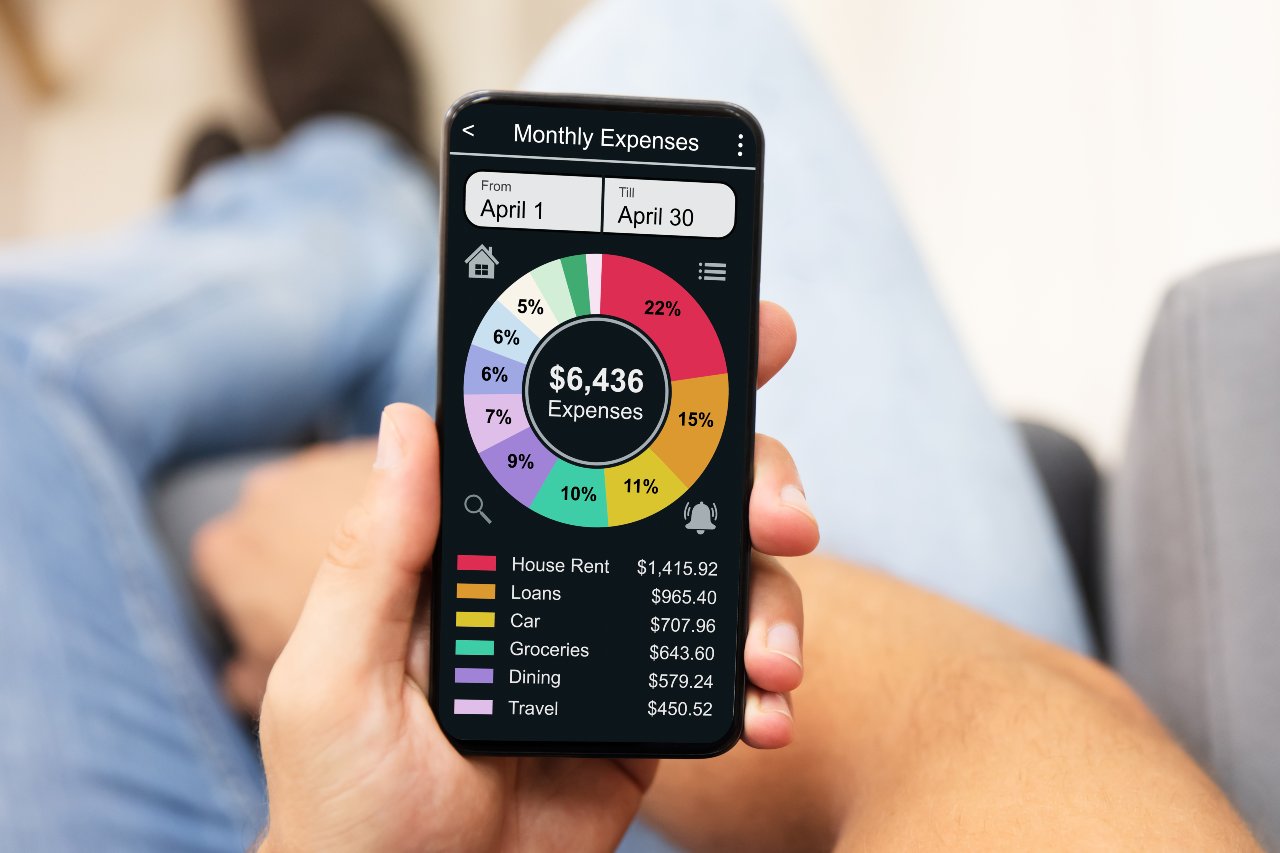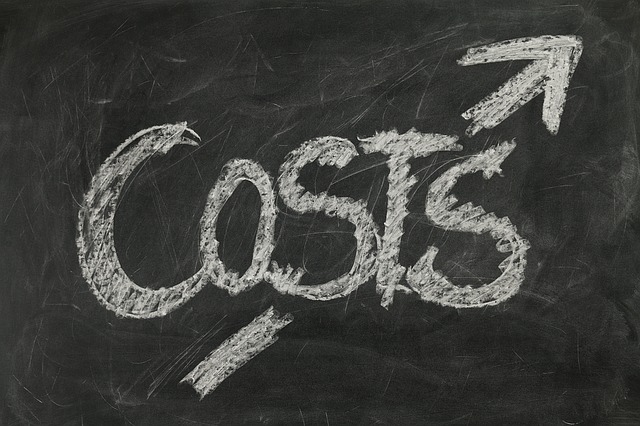How to Get a Car with No Down Payment: A Strategic Guide
The allure of car ownership is undeniable, offering freedom, convenience, and mobility. However, for many individuals, the financial burden associated with purchasing a car can be daunting. The upfront costs, including down payments, taxes, and registration fees, pose significant barriers, particularly for those with limited financial resources.
 When you can make the down payment, getting a car loan is much easier. However, this guide provides insights on how to get a car with no money down. Whether you're grappling with bad credit, a lack of savings, or uncertainty about the car-buying process, we will help you navigate the complexities of acquiring a car without a down payment.
When you can make the down payment, getting a car loan is much easier. However, this guide provides insights on how to get a car with no money down. Whether you're grappling with bad credit, a lack of savings, or uncertainty about the car-buying process, we will help you navigate the complexities of acquiring a car without a down payment.
Evaluating Your Financial Options for No Down Payment Cars
You may not need to provide a down payment if you have a strong credit score and a track record of punctual payments.
On the other hand, individuals with lower credit scores and a lack of timely payment history may face down payment requirements from lenders, who view them as a greater risk for loan default. Should you be among those needing to make a down payment but lacking the funds, consider exploring the following strategies.
Consider Using a Credit Card
Using a credit card to make a down payment on a car loan is an option that some dealerships offer. This method can be a convenient way to cover upfront costs without immediately tapping into cash reserves.
Benefits and Potential Drawbacks
Benefits:
- Immediate Access to Funds: Credit cards allow you to make a down payment even when you don't have the cash immediately available, helping to secure the financing you need for your car purchase.
- Reward Points or Cashback: If your credit card offers rewards or cashback on purchases, using it for a large transaction like a car down payment could earn significant rewards.
Drawbacks:
- Higher Overall Cost: If the credit card balance is not paid off quickly, the high interest rates associated with credit cards can greatly increase the overall cost of the car.
- Debt Accumulation: Relying on credit cards for such substantial payments can lead to higher debt levels, which might complicate your financial health, especially if you face unexpected financial difficulties.
- The dealership may charge you a fee for using a credit card to make your down payment.
Look Into Car Loans
No down payment car loans are an attractive option for many buyers, as they eliminate the immediate financial burden of a large upfront payment.
Types of No Down Payment Car Loans:
- Standard Auto Loans without Down Payment: Some lenders may offer traditional auto loans without requiring a down payment. These are often reserved for buyers with excellent credit.
- Manufacturer-Sponsored Financing: Automakers sometimes offer special financing deals through their finance arms, including zero down payment options, particularly during promotional periods or for certain models.
- Lease-to-Own Programs: These programs allow borrowers to start with a lease and then convert the lease into a purchase at the end of the term without needing a down payment.
- Credit Score: A high credit score reassures the lender of the borrower's creditworthiness and ability to repay the loan.
- Income and Employment: Stable income and solid employment history ensure that the borrower has the means to meet monthly payments.
- Debt-to-Income Ratio: Lenders will evaluate whether existing debt obligations might affect the borrower's ability to afford new car payments. Most lenders view a debt-to-income ratio below 36% as favorable, though there's some flexibility. DTI limits can differ based on the loan type and the specific lender.
- Flexibility in Cash Flow Management: Preserving cash for other uses can be beneficial, especially if the buyer has other expenses to manage.
Cons:
- Higher Monthly Payments: Without a down payment, the monthly loan payments will be higher, as the entire cost of the car needs to be financed.
- More Interest Over Time: Financing the entire purchase price of the car means paying interest on a larger amount, which increases the total cost of the car over the life of the loan.
- Potential for Negative Equity: Cars depreciate quickly, and without a down payment, borrowers can find themselves owing more on the loan than the car is worth.
Improving Credit for Better Financing Terms
Before taking out loans to fund your car, consider how your credit score impacts a potential loan.
Understanding the Importance of Credit Score
Your credit score will shape the terms and conditions of your car loan. Lenders use this metric to assess your creditworthiness and determine the interest rate you qualify for. To unlock more favorable financing terms, focus on enhancing your credit score before applying for a car loan.
Taking Steps to Boost Your Credit
Standard tips for boosting your credit score can take months and sometimes even years to take effect. However, a few ways to quickly improve your credit score include:
- Dispute credit errors on your credit report
- Become an authorized user on another person’s credit card
- Ask for higher credit limits
- Pay off collections accounts
- Sign up for a secured credit card
Other ways to improve your credit are important, too. We recommend paying off outstanding debts, ensuring timely payments, and refraining from opening new lines of credit before your car purchase.
These proactive measures can eventually elevate your credit score. However, this will take some time to reflect in your credit score.
Exploring Credit Building Programs
Many financial institutions offer credit-building programs tailored to individuals with poor or limited credit history. These programs often involve small loans or secured credit cards designed to establish or rebuild credit over time. Engaging with such programs can fortify your credit profile and enhance your prospects of securing a no-money-down car loan.
 Here are a couple of credit-building programs to look into:
Here are a couple of credit-building programs to look into:
Experian Boost: Experian Boost is a credit-monitoring and boosting platform by Experian, a major credit reporting agency. Here are a few features:
- It's free and helps users track credit activity, receive reports, and alerts.
- Users can increase their credit score by including monthly bills they're already paying, such as utilities, rent, cell phone bills, and streaming services.
- On average, users experience a 13-point increase in their credit score. According to Experian, this change can happen immediately.
- Payment history contributes significantly to credit scores (about 35% of FICO scores), so adding small bills can lead to a substantial boost.
- Signing up and linking accounts is easy; Experian Boost automatically identifies bills with at least three on-time payments in the last six months and adds them to the credit file.
Grow Credit: Grow Credit allows users to boost credit scores using select monthly bills. It may take two to three months for your credit score to change with this program.
- Users receive an interest-free, secured Mastercard with a monthly spending limit depending on the chosen plan.
- The free plan has a $17 monthly spending limit.
- Users link existing subscription services to the Grow Credit platform, which supports over 100 services, including Netflix, Hulu, and Pandora.
- The Grow Credit Mastercard is used to automatically pay for these subscriptions each month.
- On-time payments are reported to all three major credit bureaus (Experian, Equifax, and TransUnion), helping establish a payment history and improve credit scores.
These services are a good place to start if you want to build your credit score and reach your financial goals. By increasing your credit score, you will have a better chance of purchasing a car without a down payment, even if it may take a few months to see a change.
Searching for the Right Vehicle Deals
Another great way to acquire a car is to look into vehicle deals online or in person at your local dealership. Let’s explore these options further.
- Check Dealership Promotions: Dealerships frequently offer promotions and incentives to attract customers, including those seeking no-money-down car options. Look for special offers like zero down payment deals, cashback incentives, or discounted financing rates. Be vigilant in reading the fine print and comparing multiple offers to land a deal.
- Explore Certified Pre-Owned (CPO) Programs: Certified pre-owned vehicles undergo rigorous inspection and certification processes, offering quality and reliability assurance. Many CPO programs feature financing options with no down payment requirements, making them an enticing choice for budget-conscious buyers.
- Utilizing Online Resources: Online marketplaces and car-buying platforms may offer no-money-down car deals.
First-Time Car Buyer No Money: Navigating Programs
Finding the right program to help fund your car purchase may be challenging, but it is not impossible. Even if you have lost your job and have no money, there are resources and grant programs that may be able to help. These programs may provide transportation solutions, grants, and even donate vehicles to those in need.
 Researching available programs and understanding eligibility criteria can help you find the right program. Additionally, seeking assistance from nonprofit organizations that offer grants, low-interest loans, or vehicle donation programs can provide valuable support. We will explore these programs in depth later on in the article.
Researching available programs and understanding eligibility criteria can help you find the right program. Additionally, seeking assistance from nonprofit organizations that offer grants, low-interest loans, or vehicle donation programs can provide valuable support. We will explore these programs in depth later on in the article.
How to Trade In a Car with No Down Payment
When it comes to acquiring a new car with no down payment, leveraging the value of your current vehicle through a trade-in can be a smart strategy. This can help you effectively minimize the upfront costs of purchasing a new vehicle. Here are some things to think about when trading in a car with no down payment:
- Assessing Your Trade-In Value: Begin by researching the prevailing market value of your vehicle using online appraisal tools or consulting local dealerships. Be prepared to negotiate to secure fair value for your trade-in.
- Negotiating with Dealerships: When engaging in a trade-in, adopt a proactive approach to negotiating the terms of the deal. Emphasize your interest in securing a no-money-down financing option and explore incentives or promotions offered by the dealership.
- Exploring Alternatives to Traditional Trade-Ins: Besides trading in your vehicle at a dealership, consider alternative avenues for selling or disposing of your car. Online marketplaces, private sales, and car-buying services present opportunities to maximize the value of your trade-in and secure a no-money-down car loan.
Exploring Leasing Options with Zero Down
Leasing options with a zero down payment can be attractive for individuals who want to acquire a new vehicle without a substantial upfront investment. Leasing offers an alternative to traditional car ownership, allowing one to drive a new car for a fixed period while making monthly lease payments. Here are some things to consider:
- Understanding the Basics of Car Leasing: Leasing offers an alternative to traditional car ownership, allowing you to drive a new vehicle for a fixed period while making monthly lease payments. Unlike car loans, leases typically entail little to no down payment, rendering them an appealing option for individuals with limited upfront funds.
- Comparing Lease Terms and Conditions: Before committing to a lease agreement, meticulously review the terms and conditions outlined by the leasing company or dealership. Consider factors such as mileage limits, lease duration, and maintenance responsibilities.
- Evaluating Long-Term Costs: While leasing may entail lower upfront costs than purchasing a car, consider the long-term financial ramifications. Leasing typically involves ongoing monthly payments sans the opportunity to accrue equity or ownership in the vehicle.
Navigating Government and Non-Profit Assistance
Navigating government and non-profit assistance programs can help individuals looking to acquire a car with no down payment. Consider the options below:
- Temporary Assistance for Needy Families (TANF) offers transportation assistance to qualifying individuals. It provides resources such as complimentary vehicles or access to cost-effective transportation solutions.
- Free Charity Cars provides free vehicles to eligible recipients. They collect vehicle donations from generous contributors and allocate them to individuals demonstrating genuine need.
- 1-800-Charity Cars is a 501(C)(3) non-profit organization that offers free donated vehicles to support struggling families in their journey toward independence and self-sufficiency.
- Financing Assistance for Low-Income Consumers includes the statewide Clean Vehicle Assistance Program (CVA Program) and the regional Driving Clean Assistance Program. These programs help lower-income residents in California finance hybrid or electric vehicles.
- Working Cars for Working Families is an organization dedicated to providing affordable transportation solutions to low-income individuals and families, helping them access reliable vehicles to meet their daily needs.
These programs, both from the government and charities aim to help with transportation needs, make essential services more accessible, and improve people's lives.
Utilizing Co-Signers in Financing
Co-signers can be instrumental in securing car financing, especially for individuals with bad credit or no money for a down payment. A co-signer essentially acts as a guarantor for the loan, promising to repay the debt if the primary borrower defaults. This added layer of security reassures lenders and increases the likelihood of approval for a no-money-down car loan.
When seeking a co-signer, be sure to choose someone with a strong credit history and stable financial standing. This individual's creditworthiness can offset any deficiencies in your own credit profile, making you a more attractive candidate to lenders. However, one should approach potential co-signers with transparency and caution, as they will assume financial responsibility for the loan if you default.
Before entering a co-signing arrangement, thoroughly understand the terms and implications. Discuss expectations, responsibilities, and contingency plans with your co-signer to ensure mutual understanding and agreement. With the assistance of a co-signer, you can overcome financial hurdles and secure financing for a car.
Finalizing the Purchase: Essential Pre-Purchase Steps
Before finalizing a car purchase, take these pre-purchase steps to ensure a smooth transaction and avoid potential pitfalls:
- Inspecting the Vehicle: Before committing to a purchase, thoroughly inspect the vehicle for any signs of damage, wear, or mechanical issues. Consider hiring a qualified mechanic to conduct a comprehensive inspection to uncover hidden problems.
- Negotiating the Price: Negotiate the car's purchase price to ensure you get the best possible deal. Research market prices and be prepared to walk away if the seller is unwilling to negotiate.
- Reviewing the Contract: Carefully review all documentation related to the purchase, including the sales contract and financing agreement. Pay close attention to terms, conditions, and any additional fees to avoid surprises later on.
By diligently completing these pre-purchase steps, you can navigate the car-buying process with confidence and ensure a successful transaction for a car.
Post-Purchase: Maintaining Financial Health
Acquiring a car is a significant achievement, but it's essential to maintain financial health post-purchase to ensure long-term stability.
 Here are some tips for managing your finances effectively:
Here are some tips for managing your finances effectively:
- Budgeting for Expenses: Develop a comprehensive budget that accounts for all expenses related to car ownership, including fuel, insurance, maintenance, and loan payments. Allocate funds accordingly to avoid financial strain.
- Prioritizing Loan Repayments: Make timely payments on your car loan to avoid default and maintain a positive credit history. Consider setting up automatic payments to ensure consistency and avoid late fees.
- Building an Emergency Fund: Set aside funds for unexpected expenses or emergencies, such as car repairs or medical bills. A financial safety net can provide peace of mind and prevent you from debt.
- Monitoring Credit Score: Regularly monitor your credit score and report to identify any discrepancies or issues. Take steps to address any negative factors and improve your creditworthiness over time.
- Exploring Refinancing Options: As your financial situation improves, consider refinancing your car loan to secure better terms and lower interest rates. Refinancing can reduce monthly payments and save money over the life of the loan.
By staying vigilant and proactive in managing your finances, you may be able to save up for a down payment on a car the next time you want to buy one.
Conclusion
Acquiring a car with no money down may seem daunting, but it can be achievable with careful planning and a strategic approach. Remember to set realistic expectations, conduct thorough research, and seek guidance when needed. With perseverance and determination, you can confidently navigate the car-buying process and successfully purchase a vehicle.
FAQ
How Can I Afford a New Car With No Money?
Various financing options, including no-money-down car loans and co-signers, make acquiring a new car possible for some buyers. By exploring these alternatives and taking proactive steps to improve credit and financial standing, individuals may be able to secure financing for a new car without the need for a down payment.
I Need a Car But Have No Money or Job. How Do You Get a Car When You’re Broke?
When facing financial constraints, individuals may be able to purchase a car by exploring financing alternatives or seeking assistance from government and non-profit organizations. By leveraging these resources and taking proactive steps to improve credit and financial health, even those with limited funds can secure transportation. Another solution may be to ask family or friends for money.
Can You Buy a Car on a Fixed Income?
It is possible to buy a car on a fixed income by exploring financing options tailored to individuals with limited financial resources. Government programs, non-profit organizations, and lenders offer car loans that cater to individuals on fixed incomes, providing access to transportation without the need for a down payment.
How Much Money Should I Have Saved to Buy a Car?
The amount of money needed to buy a car varies depending on factors such as the purchase price, taxes, registration fees, and insurance costs. There is not one correct amount that you should have saved because each car comes with different price tags and additional costs. However, you can figure out what monthly payment will work for your budget. According to Experian, the monthly payments for new and used vehicle loans averaged $726 and $533, respectively, in the third quarter of 2023.
What is a Good Credit Score to Buy a Car with No Down Payment?
Having a credit score of 680 or above increases your likelihood of securing a car loan with no down payment and without elevated interest rates. Credit scores between 580 and 669 fall into the subprime category, which might still qualify you for a no down payment option, though likely at a higher interest rate. Scores below 580 may not qualify for a car loan approval.
What Is the Average Down Payment on a $25,000 Car?
The average down payment on a $25,000 car is typically 10% to 20% of the purchase price or $2,500 to $5,000.





